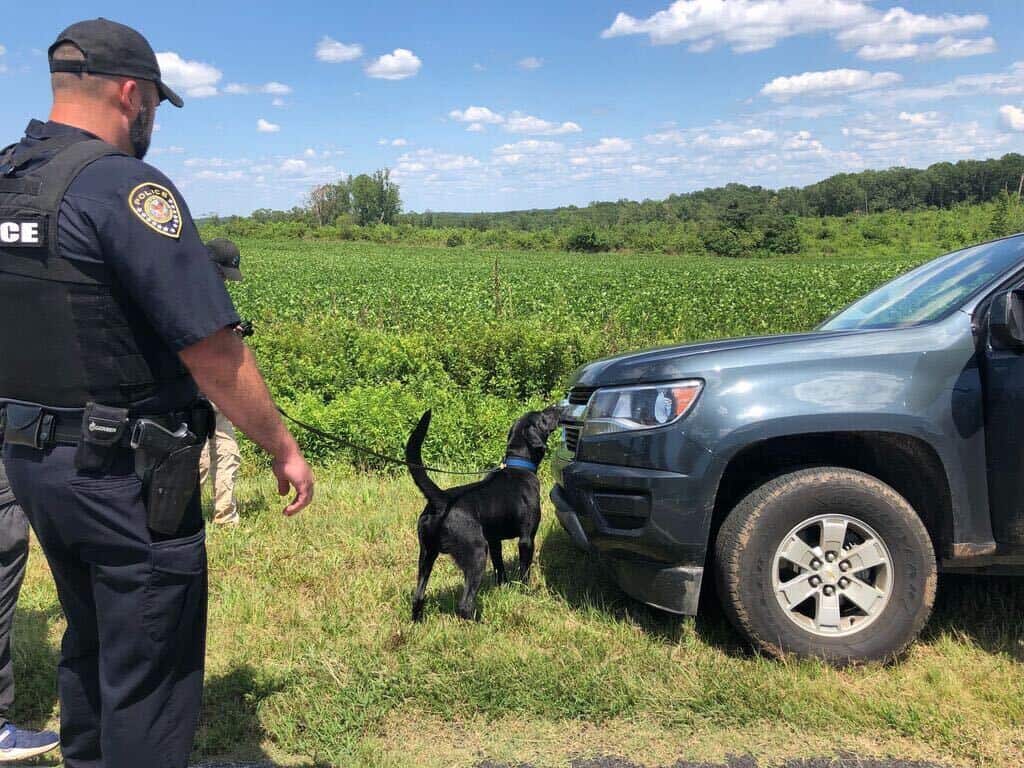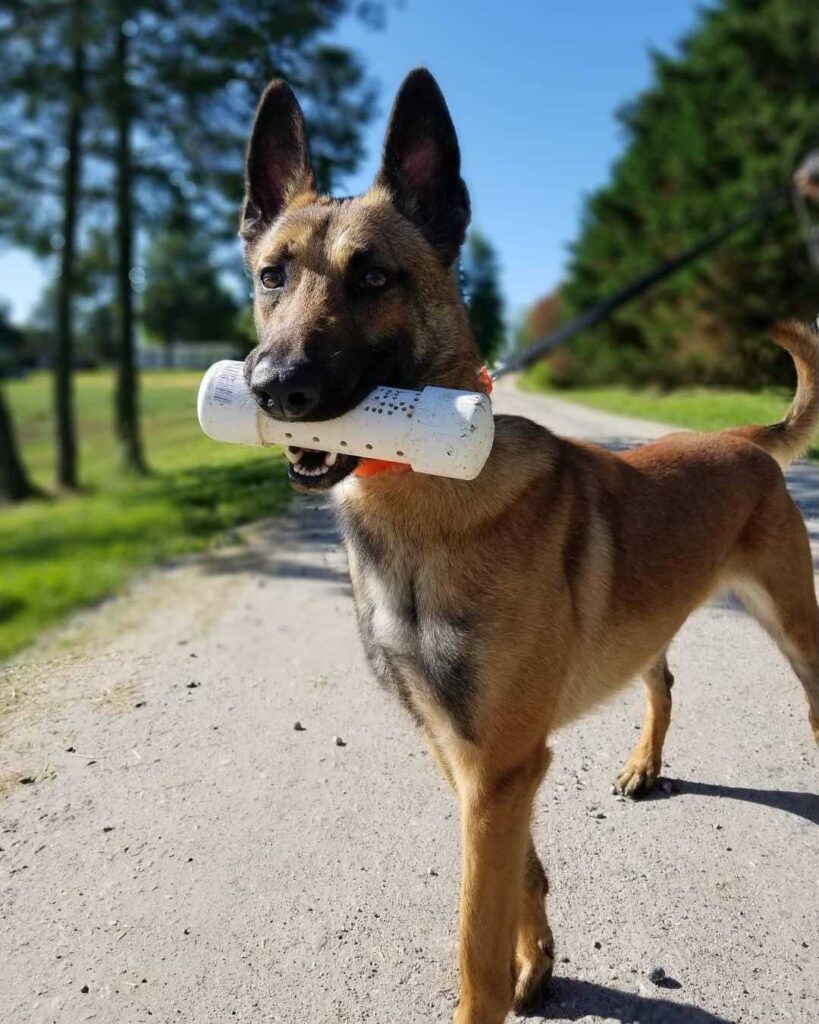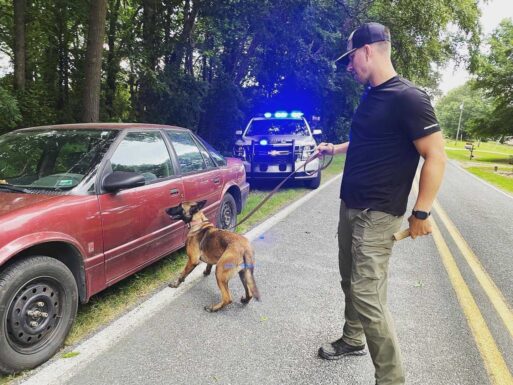When it comes to forging a career as a professional dog trainer, there are a number of paths you can take. Some like to specialize in puppy obedience or behavior modification, helping families to build stronger relationships with their dogs; others may prefer to work with service dogs who can provide incredible support to their handlers.
One avenue that a prospective dog trainer may choose to take is to become a Police K9 trainer. These skilled individuals help to prepare working and military dogs for a number of disciplines. A police dog may be adept at detecting narcotics, apprehending suspects or finding missing people in the aftermath of a disaster.
Becoming a Police K9 trainer may be one of the most rewarding facets of dog training. It provides numerous benefits to society as a whole. Highly skilled working dogs, alongside their handlers, help to keep communities safe every single day. These dogs don’t train themselves – it requires a knowledgeable, dedicated trainer who knows precisely what the dog needs to be able to do.
In this article, we’re going to look at how you can become a Police K9 trainer, along with the skillset and personality you will need to possess to be successful.
What does a Police K9 do?
A Police K9 is a specialized dog who has been trained to help law enforcement teams to keep their community safe. The role of a Police K9 can include:
- Apprehending suspects
- Detecting illegal substances, such as narcotics
- Detecting explosives/bombs
- Finding missing/deceased individuals
Because of their reliability and efficiency, a well-trained police dog is an asset to any law enforcement department. As such, quality working dogs are highly sought after, and a professional K9 trainer is required to train the dog to perform its necessary duty.

Why become a Police K9 trainer?
As with any career choice, if you are thinking of becoming a Police K9 trainer, it makes sense to take a step back and ask yourself – why?
Perhaps one of the most popular reasons to become a police dog trainer is that it is an immensely rewarding job. By training these K9s, you are contributing to making the world a safer place. Any activity that can help to remove illegal substances from our streets and schools, protect large crowds of people from the threat of explosives, or even help bring closure to a family who may have filed a missing person request, is a worthwhile and rewarding career choice.
Furthermore, if you want to pursue a career which offers frequent challenges, you can’t really look any further than dog training. Even though there are only a finite number of tasks you’ll likely need to train a police K9 to perform, every dog is different. You’ll find yourself having to overcome training obstacles and refining your methods with every dog you train. This will help to make you a more well-rounded, knowledgeable dog trainer. The constant challenge of a career in dog training can be a hugely motivating factor for individuals who place significant importance on self-improvement in their lives.
Finally, a career as a K9 trainer can be lucrative – particularly as you become trusted and experienced. The demand for reliable working dogs doesn’t appear likely to subside anytime soon. Aside from the core responsibilities of training a Police K9, you can also generate additional income streams from offering K9 handler training or speaking at seminars and industry events.
Having the ‘right’ personality
One important point to note about becoming a Police K9 trainer is to think about your own personality. How do you deal with stress? Are you good at handling responsibility?
When you think about it, there is a great deal of responsibility attached to becoming a Police K9 trainer. When the dog you have trained goes out into the real world, it is imperative that it performs in a way that the handler expects. Particularly in patrol environments, the dog and its handler are likely to be in dangerous situations. It is therefore essential that your training methods can ensure (as much as possible) that the dog is effective and reliable.
We are all wired differently. Some of us thrive on responsibility, but others can become overwhelmed. Most of the excellent K9 trainers in the industry all possess the same qualities. They are assertive. They are confident. They are knowledgeable. They are disciplined and diligent. They are constantly looking to improve. If these traits resonate with you, then a career as a Police K9 trainer could be a great match.

What is involved with training a Police K9?
When training a police dog, you will be working with the dog to ensure it can perform its chosen tasks reliably and successfully.
For example, when training a narcotics detection K9, you will be training the dog to identify and locate a number of substances with a trained indication or alert. For a trailing dog, the dog will need to be reliable over long distance and varying terrains. Each type of K9 training will bring its own unique challenges. As with other aspects of dog training, clear communication, repetition and discipline are vital.
It will typically take a number of months – and perhaps longer – to train a reliable police K9 from the ground up. Once the dog is ready, they will usually be paired with a K9 handler at the department. The K9 will often live with their handler, who will be responsible for its care both on and off-duty. You will need to be able to effectively train the handler to recognize cues in the dog’s behavior which are displayed when the dog is performing its given task.
Steps to become a K9 trainer
To become a K9 trainer, a good first step is to get the education you need to competently train a Police K9. This should begin with a foundational understanding of how all dogs (not just working dogs) actually learn, and ideally, should be a mix of hands-on interaction and classroom theory.
At the School for Dog Trainers, we offer six, eight and twelve week Police K9 Instructor/Trainer programs. These programs take you inside the mind of a dog to find out how they actually learn. From there, the course covers all aspects of training police K9s, including detection disciplines, apprehension, trailing, and more. Learn more about our Police K9 curriculum.
Once you have completed your education, there are several routes to becoming a professional K9 trainer. You could join an organization that already specializes in providing working dogs to law enforcement teams, or you could start up your own company providing those services. You could even apply to work at federal agencies like the Bureau of Alcohol, Tobacco, Firearms and Explosives (ATF) or the Transportation Security Administration (TSA) which utilize working dogs as part of their everyday work.

